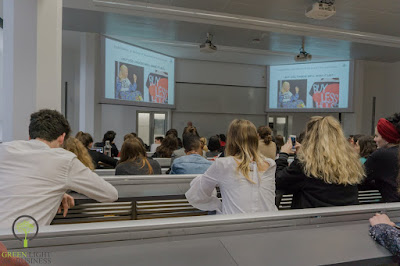#whomademyclothes?
Today, April 24th, is a very important day: it is Fashion Revolution Day, the fifth year anniversary of the Rana Plaza collapse in Dahka, Bangladesh. Rana Plaza was a commercial building that housed a number of local businesses as well as several garment factories that were major suppliers for a number of well-know fashion brands. The collapse took thousands of lives and injured many more. What's even more unfortunate is the fact that this incident could have been avoided. It was an horrific accident that got the world's attention, and begged the question of what consumers, as well as future leaders of tomorrow, can do to ensure that this never happens again.
Yesterday we started Fashion Revolution Week, which is an international, week-long, event aimed to raise awareness and address questions around fashion industry supply chains, including questions.
Throughout Fashion Revolution Week consumers are asked to raise the question whomademyclothes. And brands and producers are encouraged to respond with the hashtag #imadeyourclothes and to demonstrate transparency in the supply chain.
Therefore, if you post any pictures during this week please use this #whomademyclothes!
The fashion sector is a major global business. According to recent data, the industry is worth more than $3 trillion a year and employs 60 million people worldwide. In the USA alone, 20 billion garments are sold annually. But what some do not know is that fashion is one of the most polluting industries in the world, and one of the most complex and opaque in terms of supply chain, making some products notoriously difficult to regulate. A T-shirt label might say “Made in China,” but in which of the country’s thousands of factories was this garment made? And under what conditions for workers? Changing the production and consumption patterns of this sector would have a domino effect on many aspects of development and provide a visible and meaningful contribution to the achievement of the UN’s 2030 Agenda for Sustainable Development, which includes the Sustainable Development Goals.
But its not only about meeting SDGs, companies today need to also consider remaining sustainable going into the future. According to the State of Fashion 2018 report by BoF & McKinsey, 60% global millennials are willing to spend more on brands that are sustainable.
So, let's take action and let's join the Fashion Revolution!
Events @ Bocconi University & SDA Bocconi School of Management for Fashion Revolution









